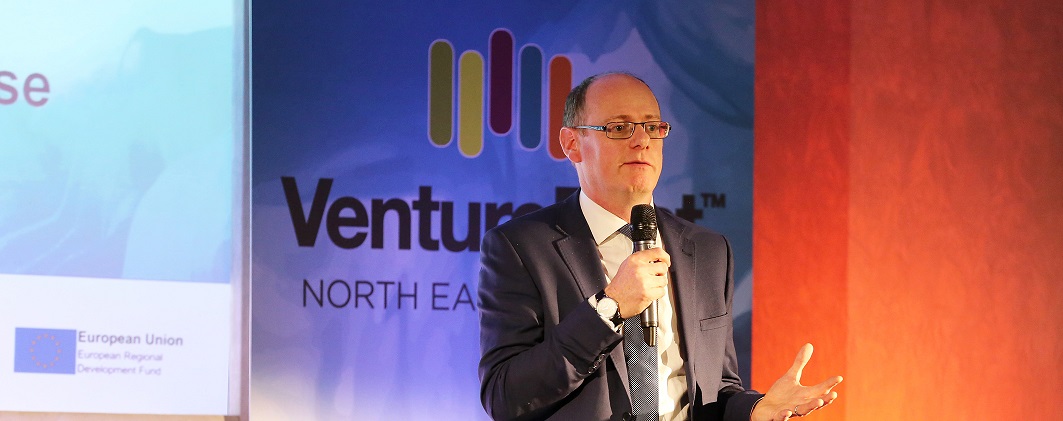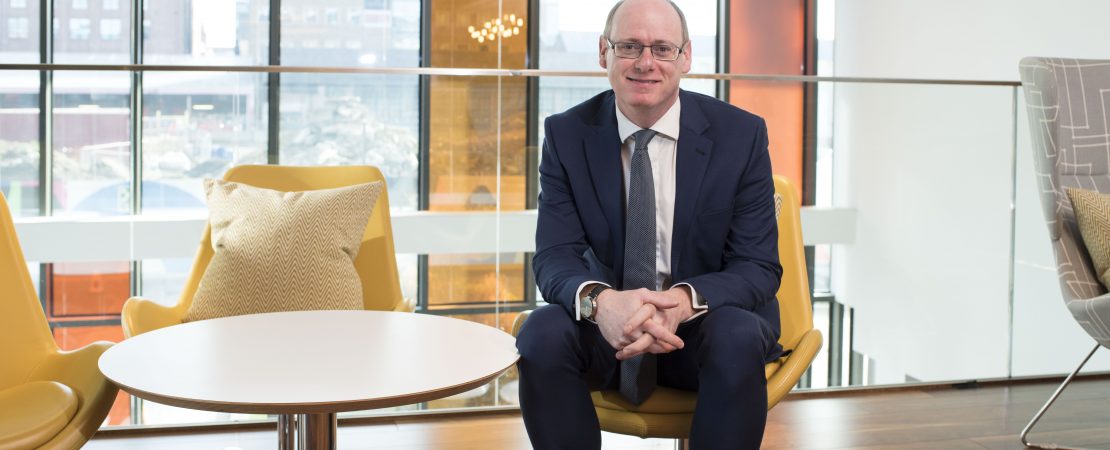Professor Matt Boyle OBE is Professor of Practice in Engineering at Newcastle University and Executive Chair of Driving the Electric Revolution Innovation Centre. Originally from the West of Scotland, Matt worked all over the world before coming to the North East in 1996 to head up electrification technology company, Sevcon.
Matt was Managing Director of Turntide Transport and oversaw the parent company’s acquisitions of Avid Technology, BorgWarner Gateshead and Hyperdrive Innovation. Today, he is Managing Director of Collingwood Solutions.
Matt, what does innovation mean to you?
Failure. Innovation is trial and error; innovation is learning from failure. Yes, there’s success at the end of it, but innovation and failure go hand in glove in my book.
Tell us more about your move to the region in 1996 to head up electrification technology company, Sevcon.
Sevcon was an interesting business; it was actually a US public company when I joined so it was a global organisation. Whilst still being micro-sized, it had operations in France, Japan, Korea, and North America. We manufactured everything here in the UK, which was an unusual thing for a business of our size to be doing at the time. It became increasingly obvious that in order to build the business we needed to either invest, which would be difficult to do because it required skills we didn’t have, or subcontract it, and that’s what eventually we did.
Was innovation a big part of your role at Sevcon?
One of the great things about being part of the team at Sevcon was that we always innovated, it was really the heart of the business. It was already instilled in the team when I joined the business but I allowed it to flourish. And that’s because people love to be successful. And we were successful.
How do you unlock innovation in people?
I come back to my original statement; you have to create an environment where people feel it’s okay to fail. But you also have to point out that continual failure along the same path is not something you want to have. I’m a great believer in bringing talented people into a business and then taking the shackles off, and we did that very successfully at Sevcon.
How easy is it to secure investment here in the North East?
It’s very important that investment follows idea and not the other way around. And what I mean by that is there is a business case that has to be developed to bid for any investment. And that requires an idea at the start. So once you get the idea and flesh it out, you then take two paths – do it yourself, or get somebody else to fund it.
Doing it yourself in this country is easier than it was. There is quite a rocky road and it does require a lot of tenacity. Going out to find money from government, for example, is extraordinary difficult and all the things that surround it are extremely time consuming. But if you can articulate your idea, and it has a market, then I would encourage anybody to go to the west coast of America because there is a different culture there. The culture is ‘what is possible’, not ‘what you’re doing today’.
Where do you think the North East could be in five to ten years time?
We could have billion pound businesses in the North East in five to 10 years time. They will be manufacturing businesses and they will be manufacturing the technologies of the future. The realism is that requires an enormous number of skilled people that we currently don’t have.
We do have a head start and that’s where opportunity exists. We create a lot of product IP in the North East, and we’ve already attracted the Britishvolts of the world, as well as the investments by Envision AESC and Nissan. And that’s a good start, but there have been several estimates about how many skilled people we need in the North East in the next five years and it’s around 13,500. And I don’t know where those 13,500 people are going to come from, but that’s not going to stop me trying to find them.
The opportunity is here, but where’s the investment. That’s what I’m trying to do now.
What can we do as a region to make that vision a reality?
Let’s start telling people what we’ve got here. I still hear ‘coals from Newcastle’, irrespective of the fact some of the drugs treating cancer today were developed here in Newcastle.
We need to reach out and explain to people what an opportunity there is here. We need to tell that story.
If you weren’t working in the manufacturing sector, what other areas of industry would you want to work in?
There are several. I love pharma. I was actually approached once to run a big pharmaceutical facility in Cramlington.
Gaming is another area where the North East has a really strong reputation, particularly in new immersive technologies.
Aerospace and space is a growing sector here. Somebody asked me the other day, ‘what do we do in space here in the North East?’ There’s a whole host of activity around communications and satellite technologies.
We’ve got the capability and now we need a little bit more investment.
You currently sit on government’s Build Back Better Business Council. What’s that experience been like and what are the types of things you’re discussing?
One of the missions of the Business Council is to improve the UK economy so there are a multitude of businesses around the table, all addressing different sectors, and some of them with different challenges. We’re essentially telling the Prime Minister what we think he should do.
I’ve been talking about skills, and the need for a combination approach to building skills in electrification field. And that comes down to upskilling and reskilling, as well as creating frameworks for kids coming out of school.
As you might imagine, I get invited every now and again to go into schools talk to them about what I’ve done in my career. There are two things I tell students; one, engineering is a career for life. You can do different disciplines your entire life and have a really fulfilling career. And the second thing is, which I really loved to hear, is that investment banks are struggling to appoint engineers because the salary differential for investment bankers and engineers is so tight. For too long talent has gone into the financial services sector but that’s changing.
Learn more about the advanced manufacturing sector in the North East.




